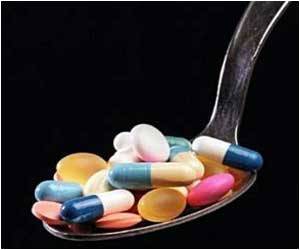For long, brain development and maturation has been thought to be a one-way process, in which plasticity diminishes with age.

In their study, FLX-treated adult mice showed reduced expression of parvalbumin and perineuronal nets, which are molecular markers for maturation and are expressed in a certain group of mature neurons in adults, and increased expression of an immature marker, which typically appears in developing juvenile brains, in the prefrontal cortex. These findings suggest the possibility that certain types of adult neurons in the prefrontal cortex can partially regain a youth-like state; the authors termed this as induced-youth or iYouth.
These researchers as well as other groups had previously reported similar effects of FLX in the hippocampal dentate gyrus, basolateral amygdala, and visual cortex, which were associated with increased neural plasticity in certain types of neurons. This study is the first to report on "iYouth" in the prefrontal cortex, which is the brain region critically involved in functions such as working memory, decision-making, personality expression, and social behavior, as well as in psychiatric disorders related to deficits in these functions.
Network dysfunction in the prefrontal cortex and limbic system, including the hippocampus and amygdala, is known to be involved in the pathophysiology of depressive disorders. Reversion to a youth-like state may mediate some of the therapeutic effects of FLX by restoring neural plasticity in these regions. On the other hand, some non-preferable aspects of FLX-induced pseudo-youth may play a role in certain behavioral effects associated with FLX treatment, such as aggression, violence, and psychosis, which have recently received attention as adverse effects of FLX.
Interestingly, expression of the same molecular markers of maturation, as discussed in this study, has been reported to be decreased in the prefrontal cortex of postmortem brains of patients with schizophrenia. This raises the possibility that some of FLX's adverse effects may be attributable to iYouth in the same type of neurons in this region. Currently, basic knowledge on this is lacking, and there are several unanswered questions like: What are the molecular and cellular mechanisms underlying iYouth? What are the differences between actual youth and iYouth? Is iYouth good or bad? Future studies to answer these questions could potentially revolutionize the prevention and/or treatment of various neuropsychiatric disorders and aid in improving the quality of life for an aging population.
 MEDINDIA
MEDINDIA



 Email
Email





